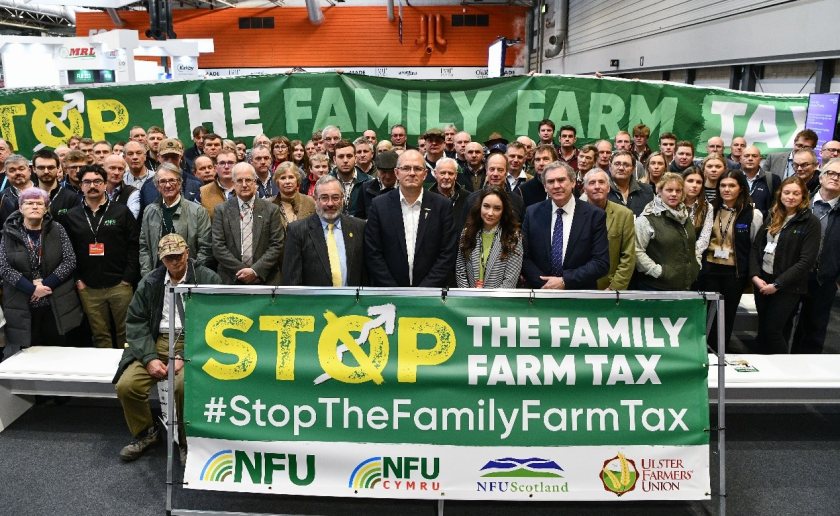Inheritance tax will break Britain's farming backbone, NFU warns

The Labour government's proposed inheritance tax proposals threaten to shatter generations of farming families and undermine Britain’s food security, the NFU has warned.
The fresh interventions comes after the government announced a technical consultation on draft legislation for the Finance Bill, including aspects of inheritance tax, to ensure it “works as intended.”
However, the NFU remains deeply sceptical and has pledged to hold the government accountable for every detail of the policy, warning it “does not achieve the government’s intentions of closing a loophole, protecting family farms, or generating as much revenue as it should.”
Contrary to government assurances that the changes will have “no material impact on food security,” the NFU insists the tax threatens the very farmers who produce the nation’s food.
“At the heart of this battle are the elderly farmers who have devoted their entire lives to growing food for the country and supporting their rural communities. They should not become collateral damage," said NFU President Tom Bradshaw.
He continued: “To see them face such uncertainty, knowing the legacy they and their families have worked hard for and grown could be ripped away by this tax, is heart-breaking.
"I cannot begin to imagine the fear many must be feeling right now – their homes, their livelihoods and everything they’ve worked for is under threat.”
Despite direct appeals to the Prime Minister Sir Keir Starmer and Treasury officials, Mr Bradshaw highlighted that Chancellor Rachel Reeves has refused to meet with the NFU to discuss the industry's alternative 'clawback' proposal.
The plan, developed earlier this year, is designed to raise the necessary revenue without forcing farmers to sell their land or breaking up family businesses.
The proposal suggests replacing the current system with one that allows farmers to only pay tax when they sell or give away their farm to people outside their family, instead of paying immediately or on a family member’s death.
This way, family farms can keep their land and business running without having to sell to pay taxes.
But Mr Bradshaw said: “The Treasury claims our solution will raise less revenue, but is refusing to release the modelling on how it came to this conclusion."
He echoed Sir Keir's words from a June 2025 interview with The Sunday Times: “Getting it right is more important than pushing ahead with a policy that does not achieve its intentions.”
The proposed 'family farm tax' has faced widespread opposition from across the political spectrum, local councils, farming organisations, the food supply chain, and the public. More than 276,000 people have signed a petition calling for it to be scrapped.
Numerous county councils — including Buckinghamshire, West Sussex, Shropshire, Northamptonshire, Cambridgeshire, Devon, and Kent — have publicly condemned the policy.
Major industry groups such as NFU Cymru, NFU Scotland, the Ulster Farmers’ Union, the Countryside Alliance, and the Confederation of British Industry have all raised concerns about its potential consequences.
And in February over fifty signatories from major supermarket retailers added their voices to an NFU letter urging the Treasury to rethink the plans.
Mr Bradshaw concluded with a call to action: “The prime minister must now take his own advice and listen to the overwhelming evidence that the current policy will not work as intended.
"To ignore the consequences this tax will bring would be a betrayal of the very people who feed our nation. We cannot stand by and watch the backbone of the countryside be broken when there is a credible alternative being offered.
“This is a moment that demands listening, compassion and action. The government needs to sit down with farming representatives to find a solution that protects the future of our domestic food production — before it is too late.”








